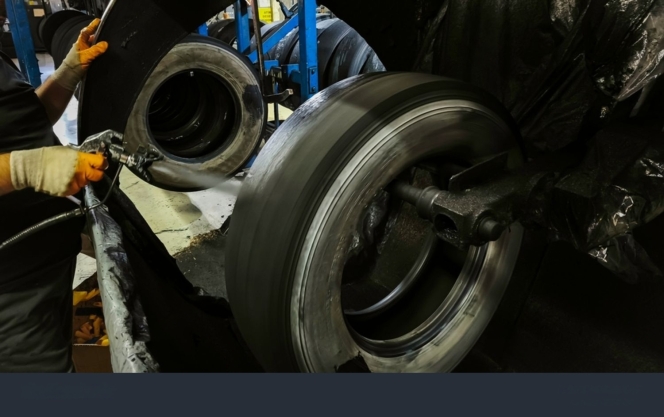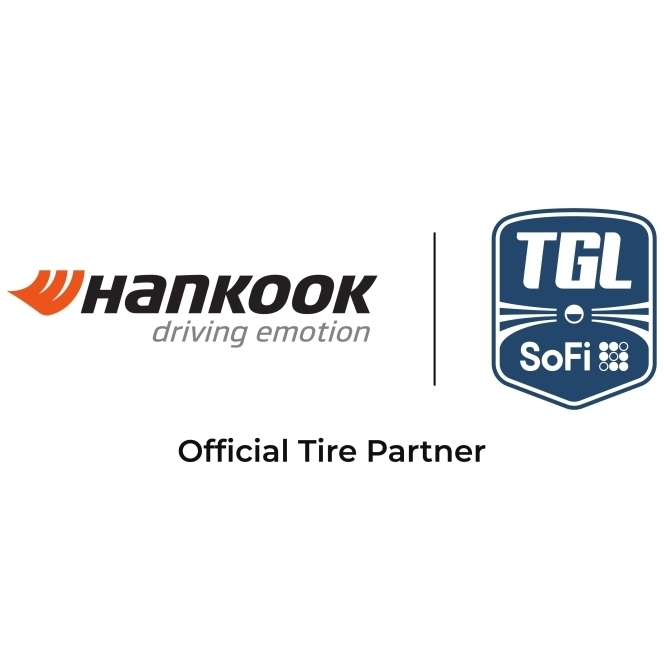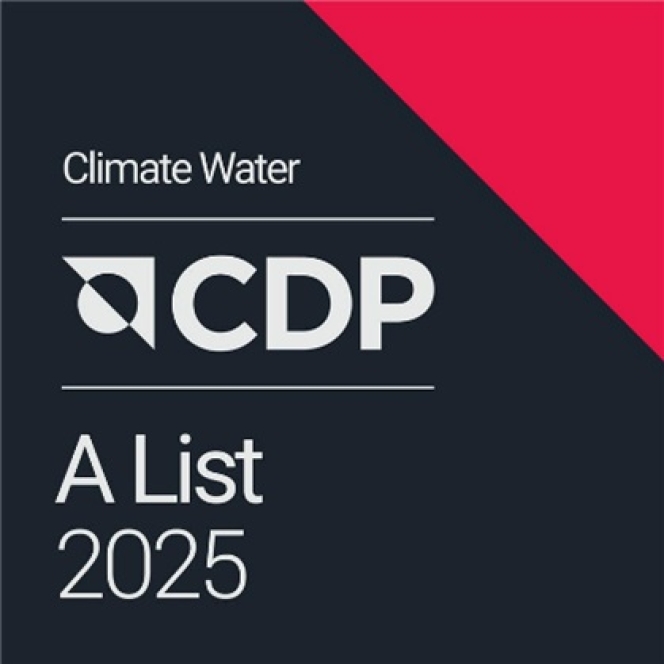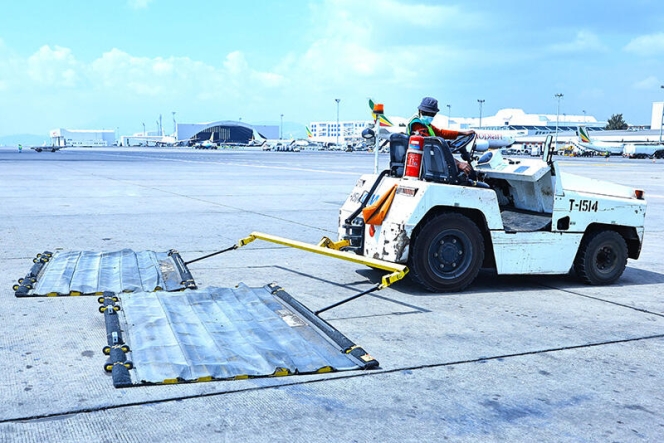- Vedanta Group
- Hindustan Zinc
- Aesir Technologies
- Prashuk Jain
- Vedanta Nico
- Nickel-Zinc batteries
- electric vehicles
- International Energy Agency
- IEA
TIRED OF POOR TYRE KNOWLEDGE
- By Adam Gosling
- May 05, 2021

As I speak with industry members, regulators and legislators I continue to be stunned by the lack of appreciation of the very critical role that tyres play in our societies.
Governments bleat about fuel security “investing” precious currency to prop up petroleum fuel storage and production in the face of the ever-expanding development of electric vehicles and more recently the advent of hydrogen as a viable fuel with thanks to the PV (solar) industry advancements. Tyres? What do you mean tyres? Without tyres our societies would grind to a halt in the near term. How are they not a strategic consideration?
Our industries (tyre, road freight transport, mining, public transport and leisure) are facing sufficient difficulties with COVID as well as international shipping challenges to be faced with continued ignorance and negligence by our legislators and regulators.
Please review your countries legislative requirements in regards tyre inflation for light vehicles (say <4,500 kgs) and then the same requirement for heavy vehicles (>4,500 kgs). What do you find?
Mostly I think you will find that tyre inflation pressures are regulated for light vehicles via the vehicle manufacturers tyre placard. For heavy vehicles there is little, if any, such requirement. To illustrate the yawning gap between reality and regulation one peak heavy transport regulatory body published a procedure for roller brake testing for heavy vehicles. The procedure details in minute detail the requirements of the pneumatic system on the truck under test yet merely stated “tyres should be inflated.” As everyone in the tyre industry understands a tyre can be inflated at low pressures totally unrelated to actual operating pressures. What connects the brakes to the pavement? Tyres!
I’ve spoken at length about the absolute requirement for a tyre to be appropriately inflated. This is basic physics, the air molecules captured within the tyre’s air chamber actually support the applied loads. If there are insufficient molecules of air the tyre will be overworked so overheat and so enter a failure phase. There are other requirements for the inflation being the actual shaping of the tyre to interface with the pavement at the optimum level, read traction. A wide based tyre requires special construction to maintain the tread platform shape. If the inflation pressure is not at the manufacturer’s specified level will this critical shape be maintained? Then it is not only the performance of the tyre in question but also the safety of the vehicle and that of the general public in the areas this vehicle operates in.
The extensive report produced by the TNO Organisation (TNO 2013 R10986) detailed not only the exhaust emissions as a result of inappropriately inflated tyres but also the road safety outcomes. This paper is now just over eight years old but the situation with real time pressure monitoring for heavy vehicles remains as it was, 50 years or more ago. WHY? Are our regulators asleep at the wheel (or tyre some may say) through entrenched inaction and ignorance? Or is it that there are just “no votes” in tyres and everyone just ASSuMes their tyres are “ok”?

EV tyres
With the advent of electric vehicles, the ramifications for tyres are huge. In the past internal combustion engines (ICE) built up torque over a rev range, drivelines multiplied the torque developed and for heavy vehicles there is a sweet spot for torque. The multi speed gearboxes assisted the driver to maintain forward motion within this torque sweet spot. Electric motors apply maximum torque over most of their operating range. From the instant the power is applied by the driver (be that human or robotic) the tyres are under peak stress. Any deficiency within the tyre will be magnified with detrimental results. Such a deficiency may be of a manufacturing nature but this is largely controllable by the manufacturer. What is not currently controllable is the human maintenance factor, the applied inflation pressure.
Tyre manufacturers have for as long as they have been manufacturing tyres been informative about the criticality of appropriate tyre inflation. There are untold charts and pictorials showing how a tyre is influenced by under or over inflation yet our regulators and legislators continue to keep their heads buried deep out of the light. WHY when tyres are such a critical component of our modern-day motor vehicle? I would charge ignorance and negligence on one hand but then on the other suggest that because tyres work as well as they do, are as forgiving (by nature of their fundamental flexible design) our “guiding powers” can focus on other trendy and glamorous aspects such as stability control or autonomous braking. An important question for these people to consider and respond to; “what item on the vehicle transfers the power (and so directly influence these vehicle control systems) from the vehicle to the pavement (be that power tractive or retardation)? Yes of course, the humble tyre.
So, when a government sponsored or publicly funded body involved in road safety ignores tyres (for whatever reason, ignorance or negligence) are they really serving the interests of our communities and societies or are they just -- I should stop there but you know where I’m going!
The technology to monitor tyre pressures in real time is and has now been available for decades. The TREAD Act (USA) mandated tyre pressure monitoring (TPMS) for light vehicles in the USA in the year 2000. This year TPMS gets a key for its birthday, yes well and truly a mature product (some may say adult) and industry yet, our regulators and legislators continue to ignore the humble tyre.
The upsides of maintaining tyres at an appropriate pressure I’ve discussed previously, all positive. The same detail has been published in many papers (such as the TNO paper!) but we as an industry continue to live in the past whilst adopting hi-tech solutions for other aspects of our industries, e.g., GPS tracking, fatigue monitoring, reefer monitoring and control, real time video surveillance of the drivers and the surrounding traffic conditions. Why? To me there is little respect paid to the critical role the tyre provides for us. So many users do not consider how the tyre works for them and why the simplest of tasks will enhance the performance, yes, I speak of inflation maintenance. Without respect the tyre will never be recognised for the contribution it has made and continues to make.
I publicly and openly challenge our tyre manufacturers as a collective to mount an education campaign to enhance the level of respect the general public has about tyres. The TIA (US) and USTMA have local campaigns on behalf of their members but I consider that until the tyre manufacturers as a collective industry actual improve the level of respect for the humble tyre we will be chasing our tails on a race to the bottom. Our tyres deserve better!
What about Michelin, Bridgestone, Goodyear, Continental, BKT, Dunlop, ZC Rubber, Hankook, Pirelli, Toyo, Sumitomo, Yokohama, Kumho, MRF, Apollo, Nokian, JKTyres, Cooper, Titan, Linglong, Triangle et al?
Remember success does not reward a lack of action. (TT)
- INDIAN TYRE INDUSTRY
- TYRE RETREADING
- BIS STANDARDS
- IS 15704
- ECE R109
- CIRCULAR ECONOMY
- MSME CHALLENGES
- AUTOMOTIVE REGULATION
- CARBON REDUCTION
- FREIGHT
- LOGISTICS
Retreading Hangs In Balance Over Regulatory Conundrum
- By Gaurav Nandi
- December 30, 2025

A population of over 1.4 billion people catapulting into the world’s third largest automobile market with four million trucks plying across a road network of 6.3 million kilometres supported by a USD 13.4 billion tyre market and a mining sector contributing around 2–2.5 percent of the country’s GDP demonstrate the strength of India’s automobile, freight and tyre sectors.
The story doesn’t end there as the Central Government adopts a strategic approach on reducing carbon emissions across these verticals, especially automobile and tyres, with targets such as the Net Zero Carbon Emissions by 2070, battery electric vehicles target by 2030, zero-emission truck corridors, Extended Producer Responsibility for the tyre sector; the list just goes on.
Amidst all such statistics and targets, a silent spectator remains the old and varied sector of tyre retreading. In a recent news story reported by Tyre Trends, the Indian Tyre Technical Advisory Committee (ITTAC) had made a proposal to Tyre Retreading Education Association (TREA) for mandating certain standards that will improve the quality of retreads. ITTAC has made recommendations to the BIS committee. TREA is part of the same committee. ITTAC and TREA are recommending different standards.
These standards included BIS retread standards, namely IS 15725, IS 15753, IS 15524 and IS 9168. The ITTAC had partially aligned Indian requirements with ECE R109, the European regulatory benchmark.
In a reply to the proposal, which was accessed by Tyre Trends, TREA urged the Indian Tyre Technical Advisory Committee to seek a deferment or non-applicability of BIS standard IS 15704:2018 for retreaded commercial vehicle tyres, warning that mandatory enforcement could cripple the sector.
In the letter, TREA argued that IS 15704:2018 is largely modelled on new tyre manufacturing norms and is technically unsuitable for retreading, which is a restoration and recycling process.
The standard mandates advanced laboratory tests such as spectrometer-based rubber analysis, endurance testing and compound uniformity checks, requirements that most retreading units, particularly small and medium enterprises, are not equipped to meet
The association highlighted that even large retreaders lack the infrastructure and skilled manpower needed for BIS-grade testing, while the sheer number of retreading units would make inspections and certifications operationally unmanageable for regulators.
TREA warned that compliance costs linked to machinery upgrades, audits and quality control could force 70–80 percent of units to shut down, leading to job losses, higher fleet operating costs and adverse environmental outcomes due to reduced recycling
Instead, TREA proposed that BIS prioritise retreading-specific standards such as IS 13531 and IS 15524, which focus on materials, process control, safety and quality consistency.
The body has also called for a phased transition roadmap, MSME support and industry training before any stricter norms are enforced, stressing that abrupt implementation would undermine the sector’s role in India’s circular economy.
The conundrum
India has a total of 36 administrative divisions comprising 28 states and 8 union territories. The tyre retreading sector has been continuously supporting circularity goals since the early 1970s across the world’s largest economy without getting mainstream recognition.
Even after five decades in service, the industry battles different bottlenecks including fragmentation, manpower shortage, tax pressures brought about by the recent GST revisions and now the implementation of such standards, just to name a few.
The sole practice that can simultaneously reduce carbon emissions from tyres and extend tyre life is assumed the nemesis of an ‘infamous and dangerous practice’ in some states of the country.
However, the industry has been drawing its techniques and quality parameters from the world’s oldest retreading economy, Europe.
“Big retreaders in India already have the necessary processes in place that conform to IS 15524 standards. However, as the standard is not yet mandated, we have voiced support for it because it is process-oriented and outlines how retreading should be carried out, including buffing and building procedures,” said TREA Chairman Karun Sanghi.
He added, “This standard focuses on how the work is done rather than imposing product-level testing that cannot be practically implemented. The current debate on IS 15704 stems from it being fundamentally incompatible. The standard includes requirements such as sidewall marking and destructive testing of retreaded tyres, which are impractical in a retreading environment where each tyre differs in brand, size, application and usage history,” he added.
Destructive testing, he argued, assumes uniform batch sizes. In retreading, where every casing is unique, testing even a single tyre would mean destroying finished products without yielding representative results. Applying such a framework would effectively require the destruction of every tyre in a batch, making compliance unviable.
“We have submitted our response to ITTAC and are awaiting feedback from the committee. We remain open to continued dialogue and will engage further once the committee responds to our submission,” said Sanghi.
According to him, a typical retreader processes about 300 tyres a month across multiple brands including MRF, JK Tyre, Apollo and Michelin and applications ranging from buses and trucks to mining vehicles. These casings vary widely in load cycles, operating conditions and duty patterns, often across several models from the same manufacturer.
The committee has cited European standard ECE R109, but Sanghi points to structural differences: “Europe is a global retreading hub where tyre manufacturers such as Michelin and Bridgestone dominate operations, collect their own tyres, retread them and return them to fleets, making batch-based destructive testing relevant. A similar model exists in US, where large tyre companies lead retreading and largely self-regulate without a single overarching standard. The Indian scenario is different, especially with a fragmented market.”
He stressed that the industry is not opposed to standards but to those that cannot be practically applied, warning that adopting European manufacturing-oriented norms without accounting for India’s market structure and operating realities would be counter-productive.
The debate is no longer about whether standards are needed but whether they are fit for purpose. Without accounting for India’s fragmented retreading ecosystem, enforcing impractical norms could dismantle a circular industry in the name of compliance.
TGL Season 2 Kicks Off With Hankook As Founding And Official Tire Partner
- By TT News
- December 29, 2025

The second season of TGL Presented by SoFi, where Hankook Tire serves as the Founding and Official Tire Partner, commenced on 28 December 2025. This innovative league, a venture of TMRW Sports with backing from icons like Tiger Woods and Rory McIlroy, represents a strategic alignment for Hankook, uniting two entities driven by technological advancement. The partnership provides a global platform to reinforce Hankook's premium brand positioning across North America and worldwide through extensive visibility during broadcasts and at the state-of-the-art SoFi Center in Florida.
This unique venue embodies the league's fusion of sport and technology, featuring a massive simulator with a dedicated ScreenZone and a dynamic GreenZone. This area, equipped with a turntable and over 600 actuators, meticulously replicates real-world golf conditions indoors, creating an immersive arena experience. The competition itself is fast-paced and engaging, with teams of PGA TOUR players competing in Triples and Singles sessions over 15 holes. Innovative elements like the point-doubling ‘Hammer’, real-time strategy via ‘Hot Mic’ and a Shot Clock ensure a dynamic spectacle for fans.
The season opener presented a compelling narrative as a rematch of the inaugural finals, pitting the undefeated Atlanta Drive GC, featuring Justin Thomas and Patrick Cantlay, against a determined New York Golf Club squad led by Matt Fitzpatrick and Xander Schauffele. This match set the tone for an intensive season running through March, where six teams and 24 top golfers will compete. For Hankook, this partnership is more than signage; it is an active engagement with a global community, delivering a distinctive brand experience that bridges cutting-edge mobility and sport for enthusiasts everywhere.
Dunlop Secures CDP ‘A List’ Recognition For Climate Change And Water Security
- By TT News
- December 29, 2025

Dunlop (company name: Sumitomo Rubber Industries, Ltd.) has made its way to the annual A-List of CDP for climate change and water security. This premier designation, awarded for the first time to the company in the 2025 evaluation, recognises world-leading performance in transparency, risk management and environmental action. CDP’s annual assessment is a key benchmark for corporate sustainability across climate, water and forests.
This achievement stems from the Group’s integrated approach to material issues outlined in its corporate philosophy. It treats the interconnected challenges of climate change, biodiversity and the circular economy holistically, advancing concrete initiatives under its long-term ‘Driving Our Future’ sustainability policy.
On climate, the Group’s science-based emission reduction targets for 2030 are validated by the Science Based Targets initiative. Operational efforts include pioneering green hydrogen production at its Shirakawa Factory and developing tyres made entirely from sustainable materials by 2050. The company also works to reduce emissions across its supply chain, lowers tyre rolling resistance to improve vehicle fuel economy and extends product life through retreading.
For water security, the strategy is driven by localised risk assessments at global production sites. In seven facilities identified as high-risk, the goal is to achieve 100 percent wastewater recycling by 2050. Progress is already evident, with the company’s Thailand factory reaching full wastewater recycling in 2024.
These coordinated actions on multiple environmental fronts formed the basis for the Group’s simultaneous top-tier recognition in both critical categories from CDP.
Bridgestone Launches Co-Creation Initiative With Ethiopian Airlines Group
- By TT News
- December 29, 2025

Bridgestone Corporation has initiated a novel co-creation programme in partnership with Ethiopian Airlines and Ethiopian Airports, focused on enhancing aviation safety at Addis Ababa Bole International Airport. This marks Bridgestone’s first sustained three-way collaboration with both an airline and an airport authority, targeting the reduction of Foreign Object Debris on runways and taxiways to support safer and more reliable aircraft operations.
The project was prompted by tyre-related incidents linked to debris at the airport, which previously risked disrupting flight schedules. Leveraging its specialised system for inspecting used airline tyres and analysing debris data, Bridgestone assessed conditions at the hub and proposed a tailored action plan. The company provided continuous support by analysing debris distribution patterns, developing visual hazard maps, advising on efficient collection methods and conducting training to raise awareness among airport personnel.
These sustained efforts have yielded significant results, substantially lowering the rate of tyre damage caused by runway debris compared to levels before the collaboration began. This reduction has supported improved on-time performance for Ethiopian Airlines while advancing overall operational safety. Additionally, the initiative has encouraged greater use of retreaded tyres, promoting economic efficiency and environmental sustainability within the airline’s operations.
Looking ahead, Bridgestone and Ethiopian Airlines Group plan to deepen their co-creation efforts, aiming to generate further value for the aviation sector and broader society through continued innovation and partnership.
Retta Melaku, Chief Operating Officer, Ethiopian Airlines, said, "At Ethiopian Airlines, the safety of our passengers, employees and aircraft is a priority. We are pleased to collaborate with Bridgestone to further strengthen our efforts in reducing FOD at Addis Ababa Bole International Airport and ensure safe operations at the hub airport."
Getaneh Adera, Managing Director, Ethiopian Airports, said, "We remain fully committed to upholding the highest safety standards at Bole International Airport at all times. This significant achievement in reducing FOD is the result of our strong commitment for safe operations and close collaboration with Bridgestone. Through our co-creation activities, we are pleased to have realised safer operations with enhanced productivity and economic value."
Jean-Philippe Minet, Managing Director, Bridgestone Aircraft Tire (Europe) S.A., said, "By combining the learnings and insights from Ethiopian Airlines' operational issues with our analysis technology and know-how, we have deepened our co-creation to propose customised solutions. We are delighted to contribute to safe aircraft operations with peace of mind and to improved operational productivity through the co-creation of efficient FOD reduction on airport surfaces. Through further expansion and evolution of this solution, we will amplify the value of our ‘Dan-Totsu Products’, trust with our customers and value of the data for creating new value."







Comments (0)
ADD COMMENT